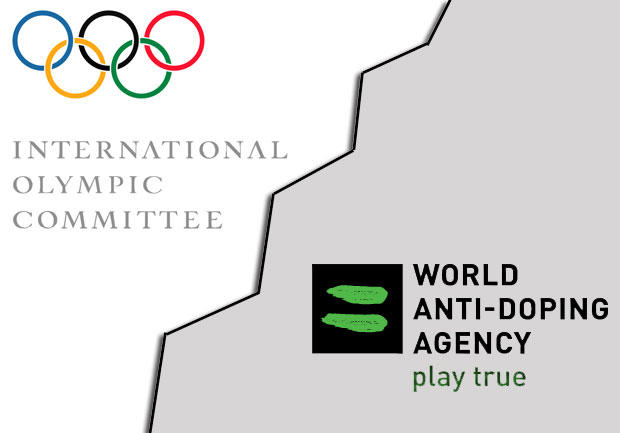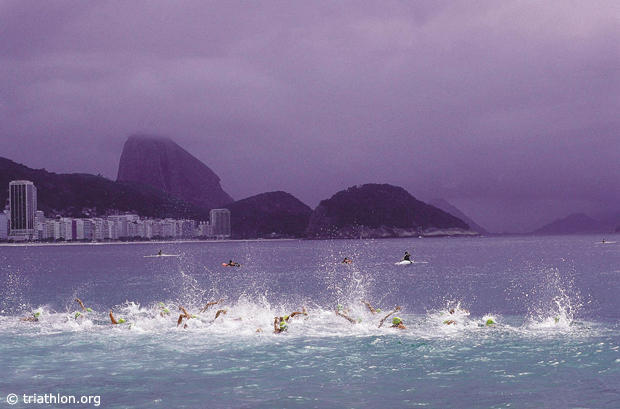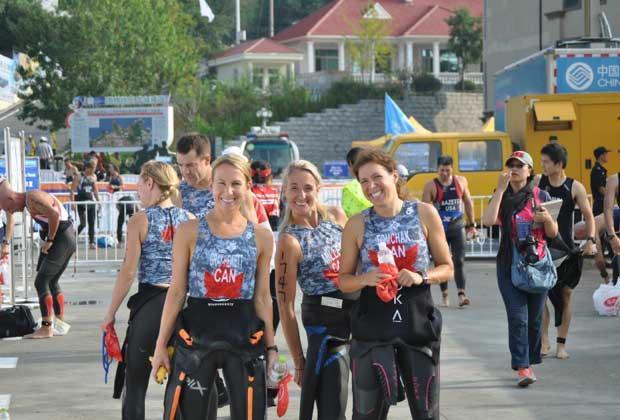All Doping is Local
When I read that the IOC passed the buck on whether to allow its sport’s Russian athletes to compete in Rio it was certain that almost every sport would let all their Russians in (who met the IOC’s pretty low bar). Why? Because we give the benefit of the doubt to athletes we know; we don’t for athletes we don’t.
My own history has been my teacher. I have a personal relationship with Lance Armstrong that goes back to the 1980s. He lived with me when he began his cycling career as a teenager. I gave him the benefit of the doubt. For too long. Did I give the benefit of the doubt to some Italian cyclist I didn’t know? Of course not.

I've noticed during my history of reporting on anti-doping – which is fairly deep – that every WADA-signatory sports organization, governing body or for-profit, national or international, simply stipulates to WADA’s judgment, wisdom, autonomy (and this goes for WADA’s affiliated national anti-doping organizations, aka NADOs). Except in this case. WADA recommended banning the entire Russian contingent from Rio.
Why didn’t each sport’s international federation (IF) follow WADA’s counsel? Because WADA’s wisdom is trumped by the personal relationship each IF has with its own athletes.
The IOC asking each sport to legitimize its own Russian athletes is no different than what we see in our own voting behavior. All doping, like all politics, is local. The approval rating of the U.S. Congress sits today at 11 percent. But 6 in 10 of us approve of the job our own Congressional representative is doing. It was dead certain what each sport was going to do with its Russians.
Track & Field (Athletics) is the only major sport to ban all its Russian athletes from Rio. Weightlifting also did so, but 6 of the 8-member Russian team would have been ineligible to go to Rio anyway (the IOC did lay down certain guidelines, such as, no former dopers were eligible).
The IOC appears to be fine with any IF’s decision to ban an entire sport's contingent of Russians from Rio. CAS upheld the IAAF’s ban on the entire Russian track & field squad. Wrestling has followed suit. Mind, the IOC has placed the IFs into a terrible position by passing the buck to them, but it has not criticized IFs that choose the nuclear remedy.
Seven Russian swimmers are ineligible for Rio based on the IOC’s guidelines. FINA announced it will "re-test all the samples of Russian athletes collected at the Kazan 2015 FINA World Championships,” which to me indicates that all Russian entrants not popped in the re-test are welcome in Rio. Canoe? Five Russians banned, but no announcement yet on the rest of the Russian team. Equestrian, Fencing, Gymnastics, Handball, Judo, Modern Pentathlon, all the Russian athletes are (or probably are) good to go based on an ABC Australia article.
In cycling, 6 out of 17 Russian entrants do not meet the qualifications, so they’re out and the other 11 are in. Don’t we know by now how hard it is to get caught? And yet 6 out of 17 have managed to get themselves banned in the past, or made their way into WADA’s IP report? And we’re letting only those who meet this very low bar race?
And so it goes. Triathlon has given the OK for our sport’s Russians: 3 men and 3 women. And that’s it. Not much more comment. Just, they’re cleared.
What this means is that all this federation faith in the ability of NADOs to make the right decisions; this surety, safety, confidence, trust; can now be reinterpreted as a convenient handing off of the hot potato of doping to somebody – anybody – else. The big winner here is the cynical view that it is not anti–doping, rather the appearance of anti–doping, that is important to governing bodies.
I don’t know triathlon's Russians, and because I don’t know them it’s easy for my to write what I’m writing. I promise that if I knew these athletes it would be much harder for me to write with the same text I’m using now, because I’ve learned the lesson of human nature and doping: You give the benefit of the doubt to those you know, whether accused of doping, course cutting or any other bad act.
Sports federations are not prepared to make these decisions. Neither is the IOC. (Honest injun, explain to me the motivation for any sports organization – public or private – to announce that one of its star athletes is dirty.) WADA was established because neither the IOC nor national or international sports federations could be trusted to police their own sports.
Understand what has happened here. Russia has been caught in a deep, well-funded, years-running, state-sponsored enterprise undermining sport in both Winter and Summer Olympics for, one assumes, enhancing national prestige. We have 28 sports in the Summer Olympics. Only 2 federations, so far, think Russia’s activities affect their sports enough to call a halt to that country’s participation in the upcoming Olympic Games.
So, two things. First, if you're confident in your athletes at least punish the country: Let the Russian athletes race under each sport’s federation banner rather than the Russian banner (the ITU has not chosen this option; at least one other federation has).
Second: We need a much more comprehensive statement from each IF to its stakeholders addressing the serious concerns we all ought to have about the most egregious case ever of state-sponsored doping. Each IF should make the case for its decision.
I have less confidence now that sports federations take anti-doping seriously than I did last week. As we say in cycling, this is each federation’s gap to close.
[This opinion piece originally included a mention of the sport of rowing, where about three-quarters of the team was deemed ineligible by the rowing federation, but for a lack of sufficient testing rather than for violations of the IOC's provisions as the piece originally stated.]




Start the discussion at slowtwitch.northend.network